The Taliban’s beauty salon ban in Afghanistan is far more sinister than it appears

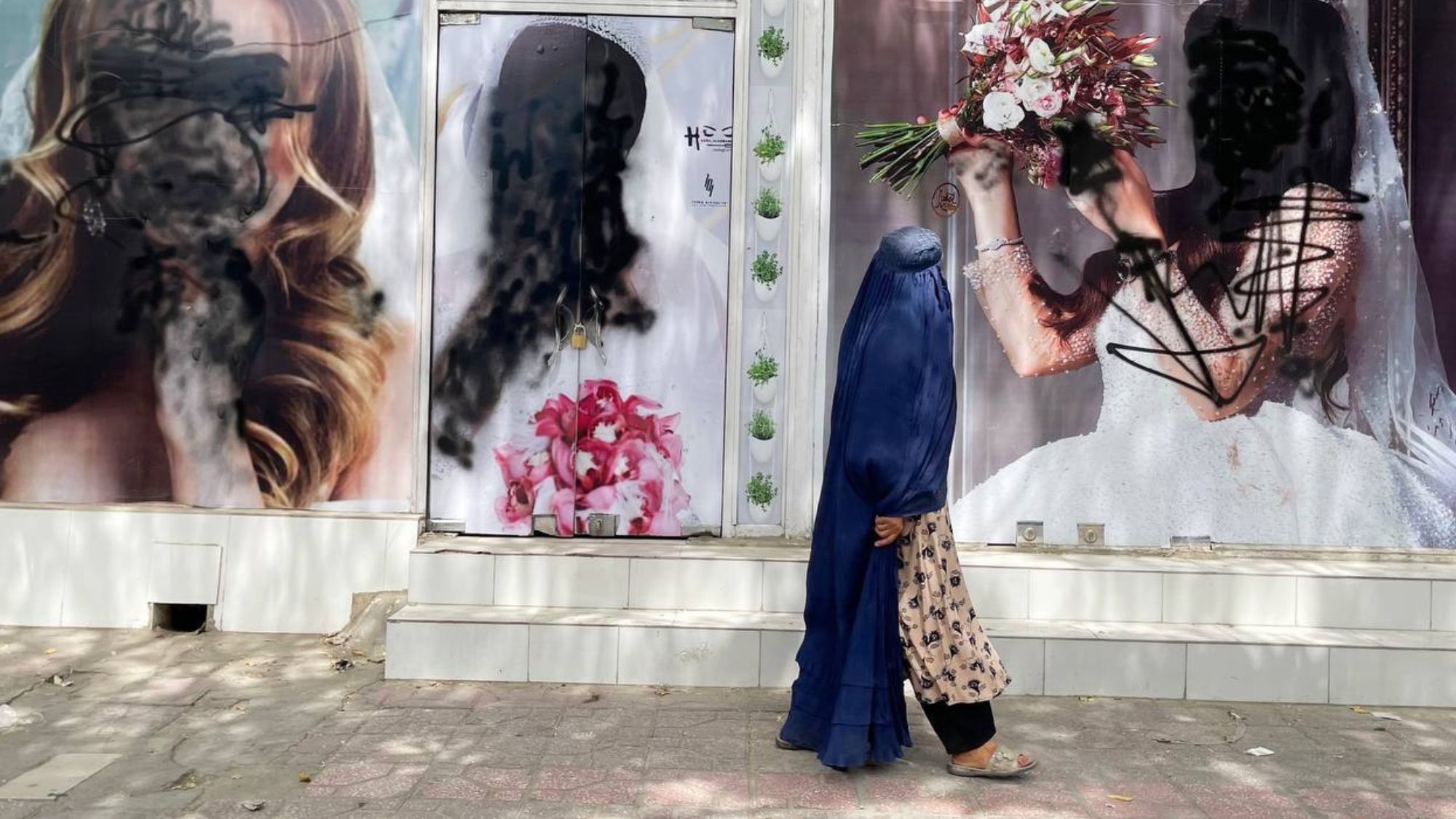
The world watched in horror exactly two years ago, as the Taliban seized Afghanistan, ending the coalition's 20-year presence in the country and leaving millions of civilians fearing for their lives.
Since its takeover, the Taliban rule has had a particularly devastating impact on Afghan women and girls, restricting their rights and imposing barriers to their daily lives.
Women and girls have been banned from secondary and higher education, prohibited from most forms of employment, restricted from leaving their homes and legally required to cover their faces in public. And now, the Taliban’s crackdown on women’s rights is extending to beauty salons, with an order in July calling for the closure of all beauty parlours across Afghanistan.
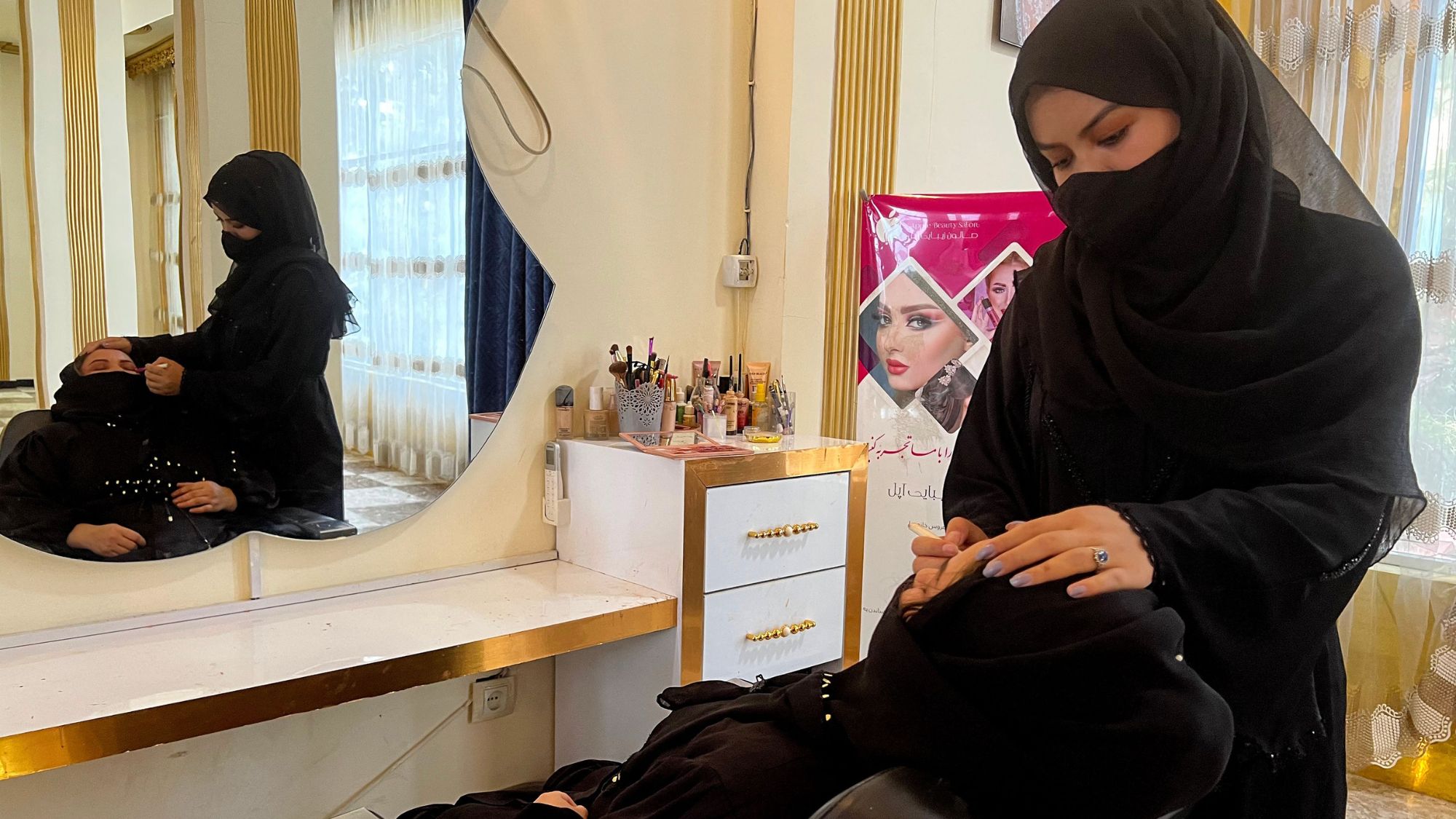
In the wider context of education restrictions and the Burqa laws, this new order might seem minor, but the Taliban’s ban on beauty salons is much more sinister than it appears - and its impact will sadly be detrimental for women.
Beauty salons have been a major source of employment for women across Afghanistan, with this month's closures estimated to result in the loss of approximately 60,000 jobs.
Not to mention, beauty shops have long provided women and girls with a safe space outside of their homes. And with female civilians already banned from parks, gyms and other public places, this ban moves to deprive women and girls of their last remaining places of community and sanctuary, as well as their incomes and independence.
“A ban on salons can sound frivolous, but this is one of the few female-dominated industries in Afghanistan,” explained journalist and International Correspondent Diaa Hadid on NPR. “It was also one of the few places where Afghan women could still congregate outside their homes.”
Celebrity news, beauty, fashion advice, and fascinating features, delivered straight to your inbox!
She went on to recall one beauty salon owner, Samia Faqiri, telling her after the ban was announced: "Death is better than this. God should just kill us all. We're alive, but we're not living."
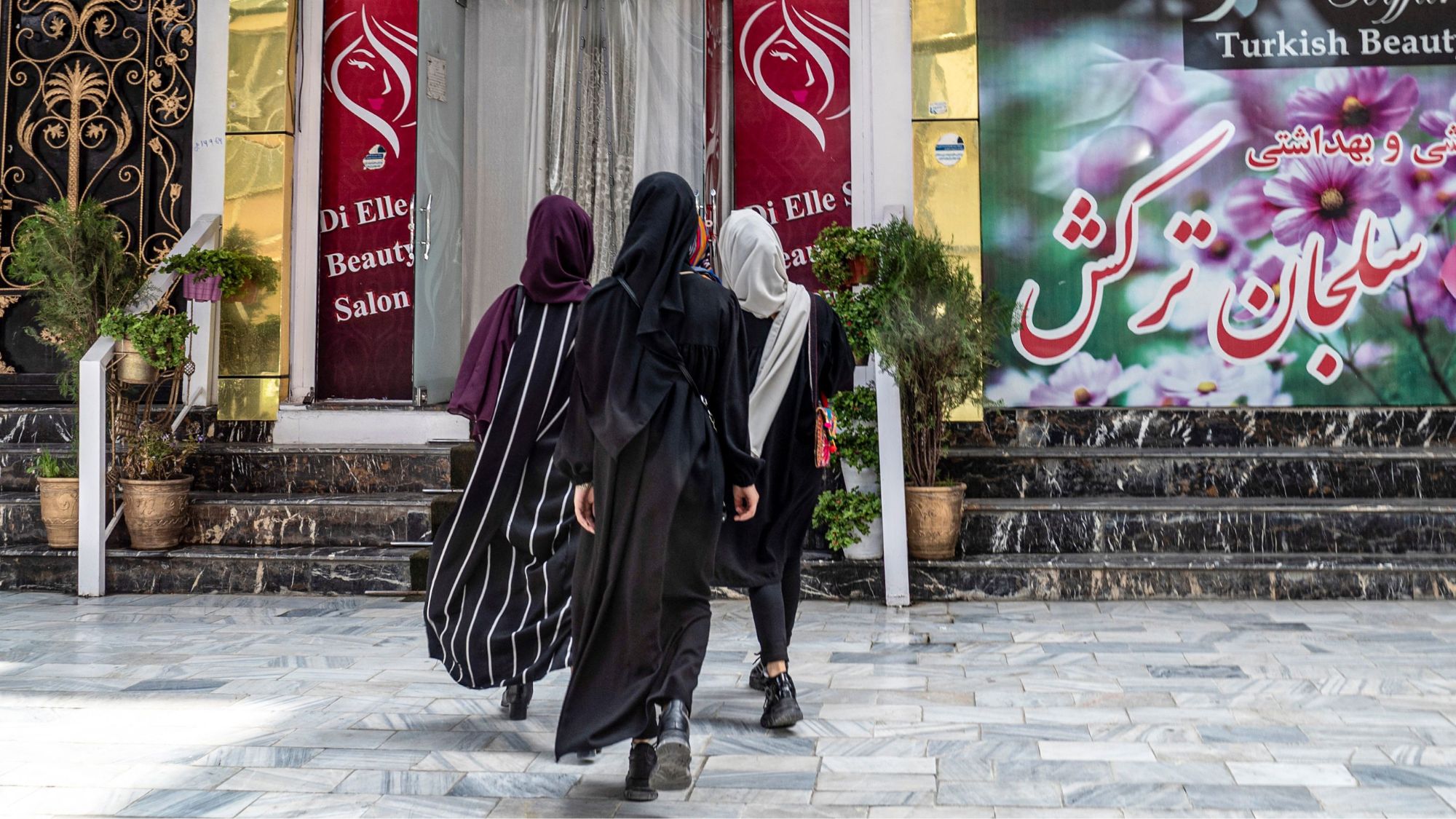
Many Afghan women have been resisting the order, with protests held in the capital of Kabul by beauty salon workers. But the demonstrations seeing women chant "work, food, freedom" and "don't take my bread and water" were broken up by security forces, using tasers and fire hoses. And now with the resistance winding down and little international support, the order - the latest restriction of many to push women out of public life, is being abided.
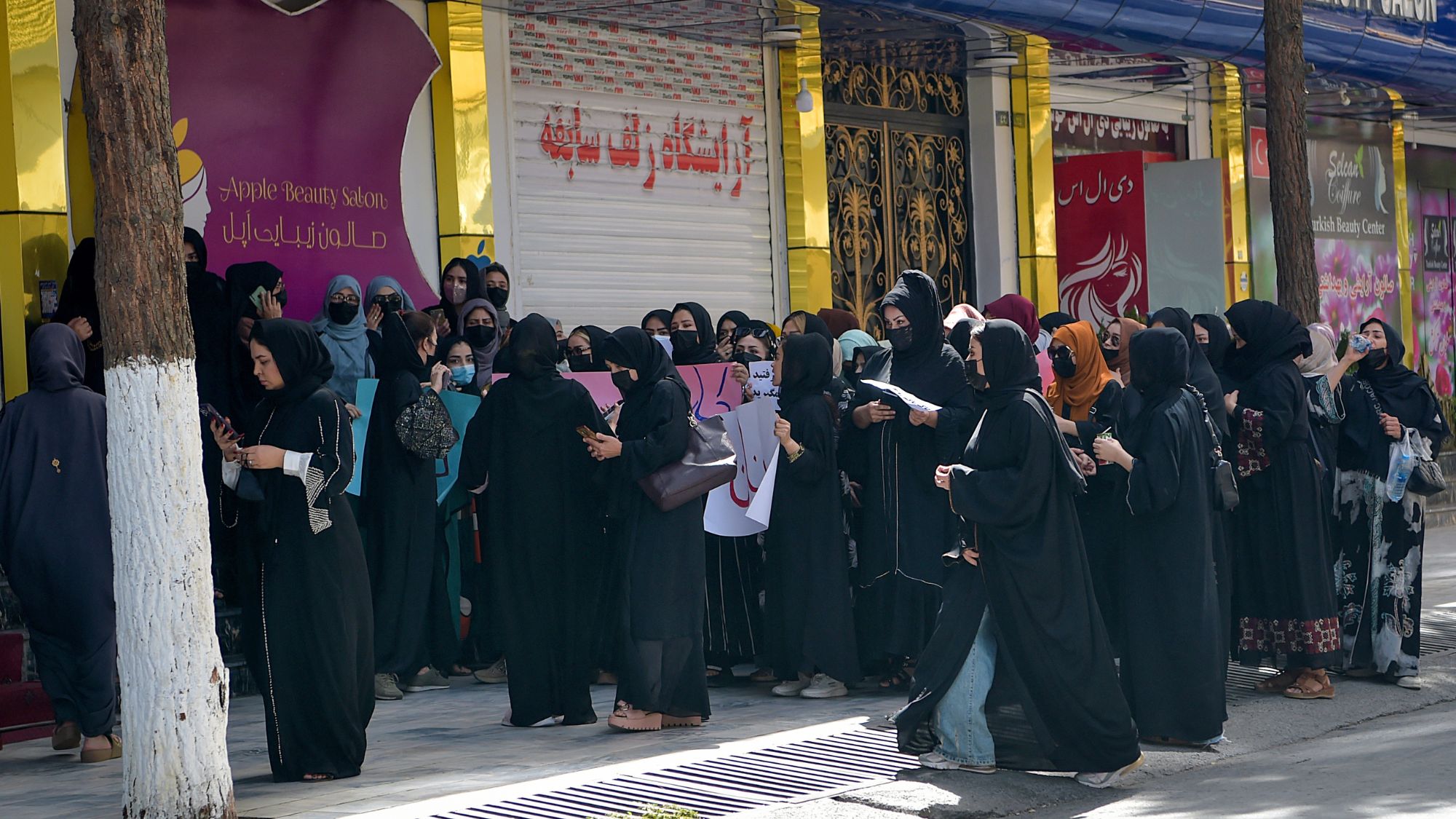
According to UN experts, 20 years of progress for women and girls' rights in Afghanistan have been erased since the Taliban's takeover. And the situation is only getting worse, with Heather Barr, associate women's rights director at Human Rights Watch, calling it "the most serious women's rights crisis in the world".
"The crisis for women and girls in Afghanistan is escalating with no end in sight," Barr has previously stated of the situation. "Taliban policies have rapidly turned many women and girls into virtual prisoners in their homes, depriving the country of one of its most precious resources, the skills and talents of the female half of the population."
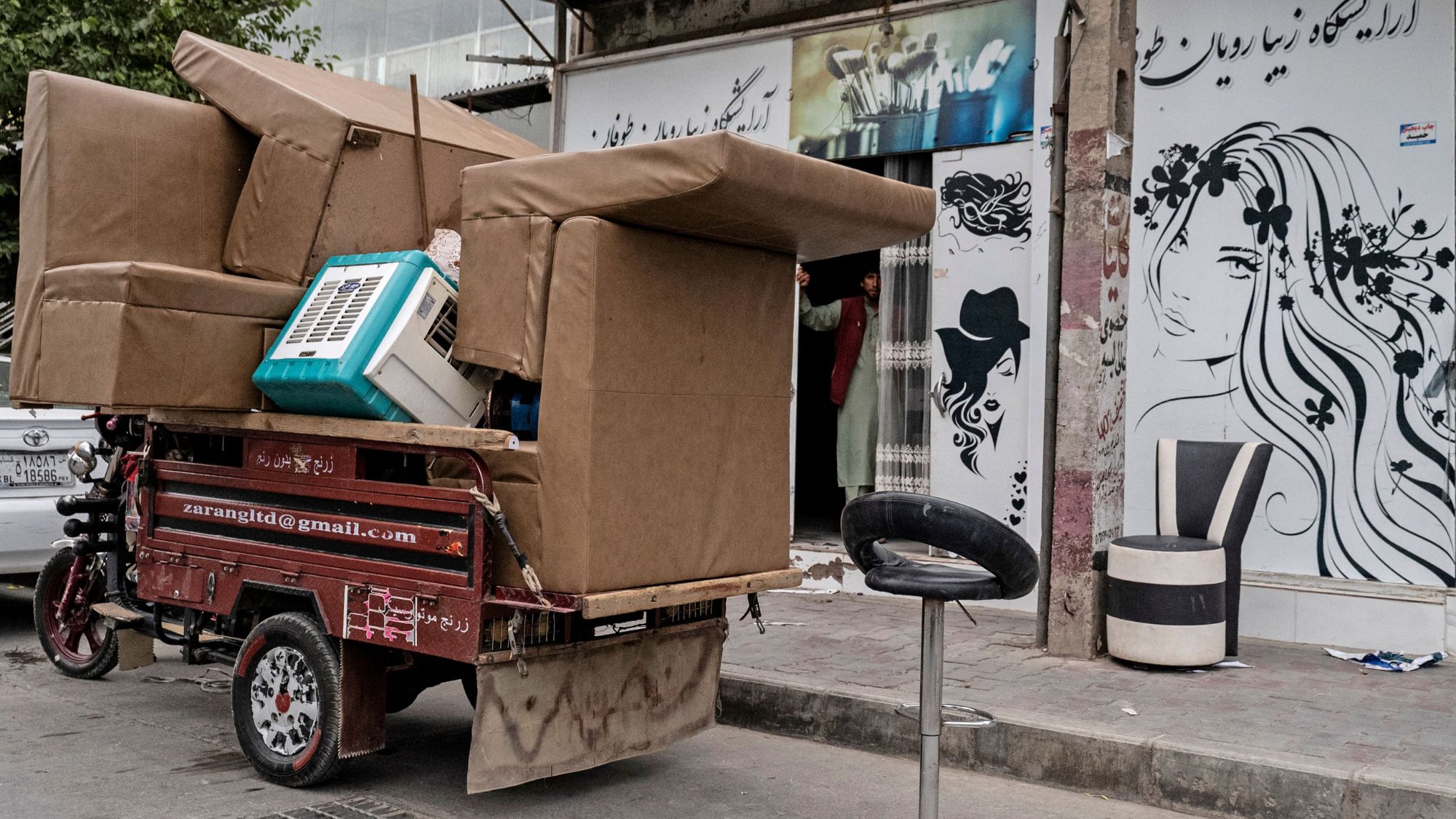
In just two years, Afghan women and girls have lost their access to education, employment, freedom of movement, bodily autonomy and now, their community and financial independence.
The Taliban's beauty salon ban is consequently much more sinister than a nation-wide closure of beauty shops. It is a calculated move to deprive women of their last remaining rights, and a sobering reminder of the plight of women and girls in Afghanistan.
We will continue to update this report.

Jenny Proudfoot is an award-winning journalist, specialising in lifestyle, culture, entertainment, international development and politics. After working at Marie Claire UK for seven years - rising from intern to Features Editor - she is now a freelance contributor to the News and Features section.
In 2021, Jenny was named as a winner on the PPA's '30 under 30' list, and was also listed as a rising star in journalism.